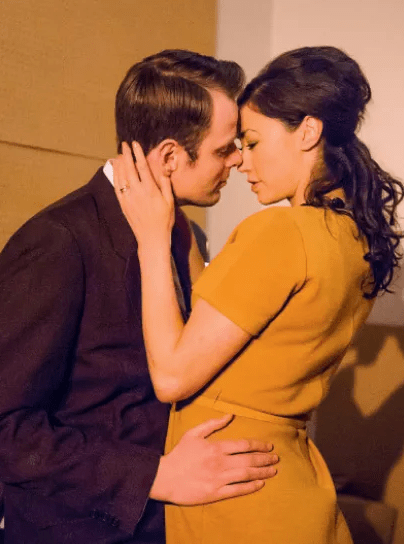One of last year’s unexpected treasures was a novelty show by Defibrillator that took three neglected Tennessee Williams plays, all set in hotel rooms, and staged them in suites at a five-star dosshouse in central London. The Langham Hotel, an antique hulk of marble and glass overlooking Broadcasting House, is justly proud of its raffish literary history. Arthur Conan Doyle once met Oscar Wilde there for a chinwag and a cup of tea and by the time the bill arrived they’d conceived a fictional detective named Holmes.
The Langham’s management is keen for Defibrillator to repeat last year’s success but how? Search the archive for more plays set in hotels? Dramatise a short story with a hotel location? Commission some brand-new inn-based drama? Defibrillator plumped for option three. And it’s immediately apparent what’s missing: Tennessee Williams and the peculiar harmony between his artistic sensibility and the hotel location. A five-star hotel complements and makes sense of Williams’s world. Posh hotels thrum with isolated melancholy, with decadent rootlessness, with a sense of inner anguish masked by the genteel veil of opulent living.
The commissioned writer, Ben Ellis, has written three playlets and the first is set around about now. An uppity pop princess sulks in her suite while tens of thousands of fans howl and beg for her at some nearby stadium. Enter her kindly, snowy-haired manager who attempts to talk her out of her strike. He’s a father figure who may also be her lover, her ex-lover or her future lover. Or none of the above. It’s not entirely clear. The story is well suited to the faded crimson glamour of the subterranean suite but it crashes and burns just as it seems to be taking off.
The next venue, six flights up, is a kiosk-sized room bearing the signature tint of the 1970s: Ovaltine. The space is arranged as a recording studio with creaky reel-to-reel tape machines. It’s quite a puzzle, this play. Time: 1973. The studio is occupied by an American couple, Peter and Eloise, awaiting an interview on the topic of mechanised shipping — what else? — with particular reference to the feasibility of imposing a new remote-controlled system on London’s dockyards. That’s quite a lot of weird detail to cram into a 20-minute play but Ellis also wants to explore Peter’s gay infidelities and his unresolved bitterness over a family death in Vietnam. Exactly how bisexual trysts and lingering grief wound up in the same pigeonhole as container shipping is a mystery that can’t be solved for sheer lack of time. As soon as the storyline is explained, the curtain falls and the audience sets off again.
At venue three more bafflement greets us. We’re in 1871. We’ve left the Langham for somewhere else. Not sure where. The main figure is Napoleon III (so we’ve also moved from fiction to documentary history), who babbles elegantly about the events of his reign and his desire to visit Indochina by boat. Again the curtain falls before the play engages us fully. After that we were ushered into the hotel’s costliest suite (£12k a night), and irrigated for two hours with gallons of deliciously cold champagne. Usually critics get a thimble of warm plonk and a cheesy Wotsit. I hope Defibrillator revisit this project for a third time and do so with a bit more artistic circumspection. My tip would be to hire a celebrity dramatist whose name will prove a big enough draw.
The Rise and Shine of Comrade Fiasco is a satire about Mugabe’s 35-year leadership of Zimbabwe. Our fascination with this subject is quickened by Mugabe’s refusal to admit British reporters to his country. The play opens in confusion. Three shouty prisoners in a cell are joined by a fourth, barely conscious. The cell echoes for 20 minutes with gobby rhetoric, which ends when the stunned newcomer gasps out his name, Comrade Fiasco. The three sentient prisoners spend another hectic 20 minutes guessing at Comrade Fiasco’s personal history. As soon as these fantasy ramblings are complete we learn that every detail of their imagined biography is inaccurate.
The play is now half over and the writer has yet to tell us what decade we are in. Or what century. It’s hard to think of a more fundamental error in period drama. Finally we get a time check and we learn that the era under scrutiny runs from 1978 to 1986. Great. What now? Well, it appears that Comrade Fiasco spent those eight years hiding in a cave beset by hallucinations. So he’s not the best witness to events on the ground. He’s the worst witness to events on the ground. An amazing evening. In 90 minutes I gleaned not a single piece of data about the play’s subject. That’s never happened before. Lovely title, though.







Comments